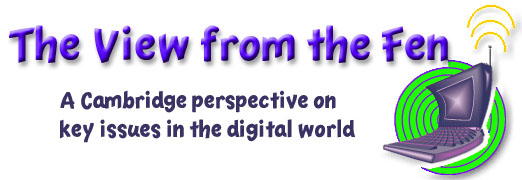

![]()
With more than 12 billion SMS messages sent in the UK last year,
text messaging is no longer just a teenage fad: it is becoming a
serious business. But as the industry matures, the thorny question of
pricing raises its head. If the era of 'cheap SMS' is at an end. And
what is a message worth? 

The growth of SMS text messaging has taken mobile operators by surprise. One result of this was that the pricing regime for SMS arose almost by accident. SMS does not use normal voice channels: it uses a protocol that was built into the GSM digital cellular standard for signalling purposes, and not expected to be widely used by consumers.
A 'token payment' of around 10p (0.1 GBP) was originally introduced, mainly to prevent abuse and discourage overloading of the network. This 'token payment' has now grown to become a substantial, and rapidly growing, income to operators. The income was unexpected but very welcome, as voice revenues come under increasing pressure.
But operators made no provision, in their billing systems or contractual arrangements, for interconnect payments - that is, for payments from one operator to another. Messages were transferred from one operator to another for free. This made perfect sense on the basis that, by and large, traffic in and out would balance out, and would not be very great anyway,
As it turns out, the traffic did not balance out, and the sums involved turned out to be quite substantial.
In the new entrepreneurial environment of the Internet, it did not take some companies long to realise that, by routing traffic through overseas networks, they could send SMS messages for free. A number of organisations seized the opportunity to provide free SMS messages sent from the Internet; other organisations were set up to provide low cost bulk messaging (at 1.5p per message or less), all routed through international operators. Swiss operator Swisscom, for example, built up a significant business routing low cost SMS to destinations in other countries.
UK operator Orange (now owned by France Telecom) has just spoiled the party by switching off interconnect from non-UK operators - at least until interconnect arrangements are in place. Does this signal an end to cheap (and free) SMS? Yes, most observers think. Is it a bad thing? And what is the right price for a message anyway? These are more complex questions.
The end of 'free SMS' was probably as inevitable as the end of the 'free lunch' on the Internet. In the end, unless a service is paid for (one way or another) it cannot support the people and resources needed to keep it going, and it is liable to close down. For a while the Internet bucked this basic economic law because governments, academic institutions and individuals were prepared to put in time and resources without a direct return; and investors were prepared to speculate, in the hope of staking a claim on the new business territory which the Internet opened up.
But this suspension of basic economic laws only lasted for a while. Eventually, normal service had to be resumed.
But if messages are going to be paid for, what's the price? For a complex set of reasons, the market seems to be gravitating towards 10p as the 'retail' price of a message (the arbitrary token payment has become what the market expects), with 3p as the 'wholesale' price of telecommunications delivery.
These prices are difficult to justify rationally on grounds of actual cost. An SMS message of 160 characters carries the same amount of data as just a fraction of a second of a voice call, though it has to be routed through a different switching network.
However markets (despite what some economists might think) were never rational. For users, a text message may contain as much useful information as a voice conversation, and (for some at least) may actually be more convenient. For millions of users, 10p has turned out to be an acceptable price.
Other price points are being set for premium SMS: charged message delivery, with revenue being shared with third parties. Through the back door, and almost by accident, SMS has become the first viable means (outside Japan) for operators to share telecommunications revenue with third party providers of content, applications and services.
For example, 25-30p (roughly the cost of a first class stamp in the UK) looks like becoming one of the standard prices for premium messages, with a proportion of this (not as much as many would like) being passed on to third parties.
Whether operators' pricing can be justified or not, the market seems to accept it. This pricing certainly gives operators an incentive to promote SMS and improve the quality of service (where work is still needed). More important still, it starts to establish market acceptance of the payment of small amounts for mobile-delivered data services. One of the fundamental problems for anyone trying to build an Internet-based business is that users expect everything on the Internet to be free. This is a habit that will be difficult to break. Consequently, building many types of business on the Internet is, for the time being at least, impossible.
As we argued in our recent IEE Review article Learning from i-mode, a vital role for telecommunications operators in the future will be as collectors of payment and, effectively, retailers of things delivered by others through the network. This income stream will provide the economic life support for a new layer of third party content, application and service businesses. In the UK and Europe, it looks as though SMS will be the medium through which this happens, for the immediate future at least.
Contact us to discuss the implications for your business, in particular the opportunities for SMS and mobile-delivered applications and services.
©Mediation Technology 2002


